By Jethro Swain with contributions from Dr. Douglass Jackson and Dr. Cameron Randall
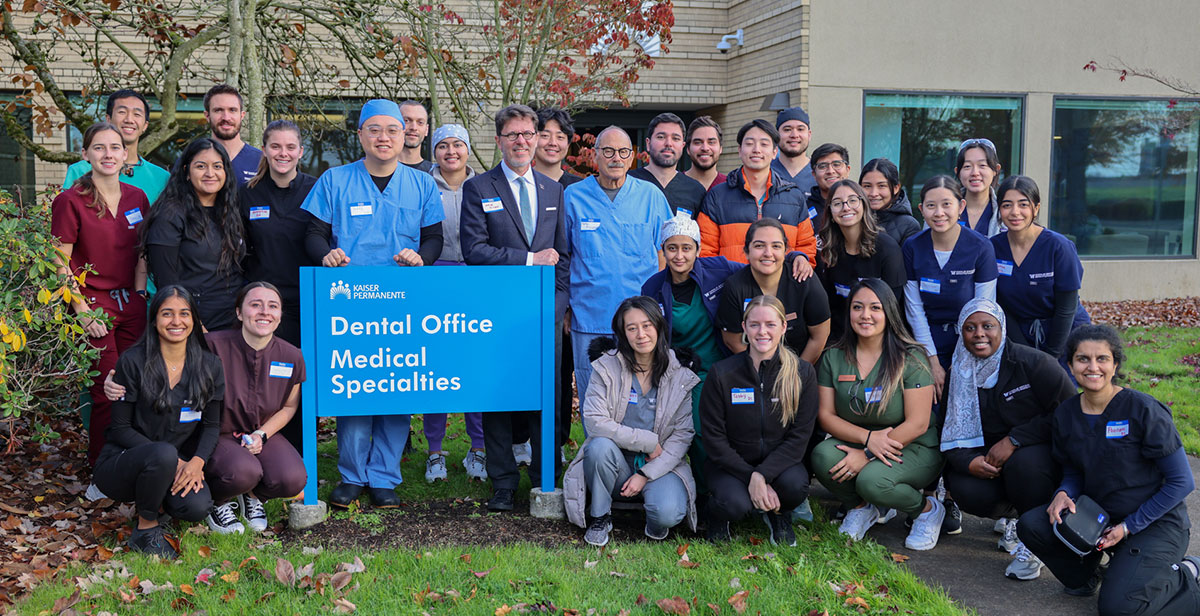
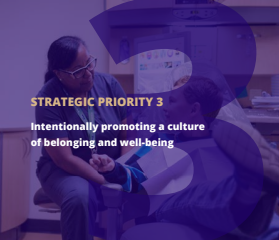 The School of Dentistry strives to be a place where all students, staff, faculty, alumni and patients are seen, heard and valued, as well as safe and supported. In short, the School wants everyone to feel they belong here. But what does that truly mean? And how does the School benefit from being an inclusive community? Answering these questions, and ensuring the School is a place where people are connected and empowered, is the third of five Strategic Priorities of Advancing Oral Health for All (AOHFA), the School’s ambitious five-year strategic plan.
The School of Dentistry strives to be a place where all students, staff, faculty, alumni and patients are seen, heard and valued, as well as safe and supported. In short, the School wants everyone to feel they belong here. But what does that truly mean? And how does the School benefit from being an inclusive community? Answering these questions, and ensuring the School is a place where people are connected and empowered, is the third of five Strategic Priorities of Advancing Oral Health for All (AOHFA), the School’s ambitious five-year strategic plan.
While many layers of AOHFA are academically oriented, priority three focuses on our connections to one another and ensuring people can be their authentic selves at work and in school and clinic every day. At its heart, this strategic priority represents a framework for thinking about equity, diversity, inclusion, belonging, the success of individuals and the deliberate actions taken to achieve these goals.
Inclusive excellence is integral to the School’s mission, vision and values, and it includes the diversity of experiences brought by our trainees (including predoctoral students, graduate students and residents), alumni, staff, faculty and community partners. Fostering inclusive excellence promotes creativity, innovation and productivity and it holds promise for more and faster breakthroughs in teaching, learning, research and service.
Strategic Priority Three is an investment in the School’s people and sense of connection to one another and to the institution. At an individual level, the investment adds value to a person’s experience there. And it supports the strong and thriving community necessary to build and maintain global leadership in oral and craniofacial research and dental education.
The Framework of Inclusive Excellence
Officially launched in December 2023, AOHFA was developed with significant stakeholder participation, representing the collective sense of purpose and direction for the School. It is the result of many focused reviews of an enormous amount of data compiled from one-on-one interviews, focus groups and surveys, led by the Academy for Advancing Leadership, the consulting group hired to facilitate the strategic planning process. Data sources included the 2021 American Dental Education Association’s climate assessment of all U.S. and Canadian dental schools and allied dental education programs. Data came from trainees, alumni, staff, faculty, university leadership, organized dentistry, legislative leadership and other valued partners of the School. The team that reviewed the data and led the development of Strategic Priority Three included Juman Al-Haddad, Rebecca Cossette, Joel Hawkins, Dr. Susanne Kolare Jeffrey, Dr. Pollene Speed-McIntyre and Dr. Chanira Reang Sperry.
Facilitated by Maggie Helsel, Director of Marketing and Communications, and Dr. Douglass Jackson, Associate Dean for Equity, Diversity and Inclusion, Strategic Priority Three’s group of volunteers co-created a definition of belonging and well-being through the framework of inclusive excellence and what they consider to be the essential “Six Pillars of Belonging”: being seen, heard, connected, supported (physically and psychologically safe), proud and valued. Thus, “intentionally promoting a culture of belonging and well-being” became the overarching aim of Strategic Priority Three.
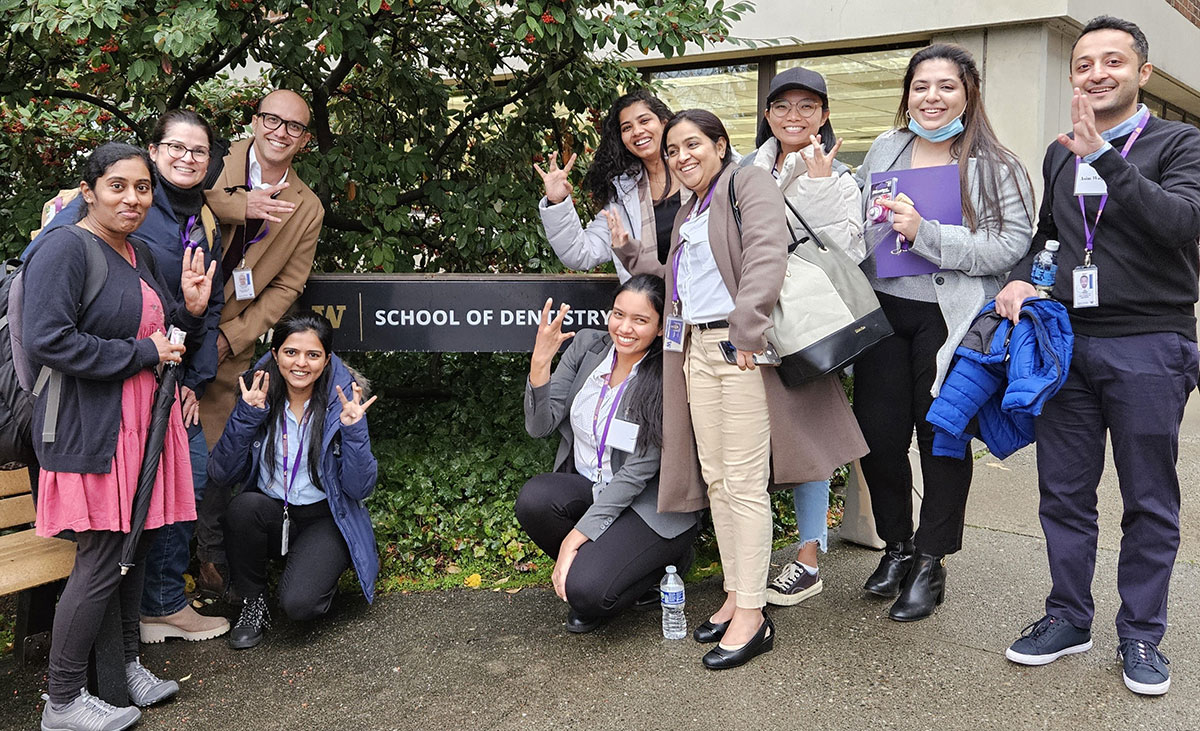
While everyone in the School is responsible for helping implement the plan in their daily work, Dean André Ritter established leads for each of the strategic priorities to steward the process and ensure accountability. That team includes: Renni Bispham, Assistant Dean for Human Resources; Dr. Cameron Randall, Assistant Professor of Oral Health Sciences; and Megan Shank, a predoctoral student. Co-led by Dr. Jackson and Dr. Susan Coldwell, Associate Dean for Student Life and Admissions, this team is beginning to identify existing activities and emerging opportunities to make progress on Strategic Priority Three, advocating for a strong culture of belonging and wellbeing and measuring impact across time.
To that end, and to foster a deep sense of community and inclusivity, several thoughtfully considered initiatives recently were launched. These new programs and events complement some of our School’s longstanding traditions and, together, will drive inclusive excellence at our School.
“Belonging as a dental student means feeling supported by and connected to my peers,” said Shank. “We’re all in this together, navigating the ups and downs of dental school as a tight-knit community. We celebrate each other’s successes and offer support through the challenges.”
Avenues of Communication: Community Conversations and Coffee Talks
Over the course of this past calendar year, the School began hosting Community Conversations— quarterly meetings to provide regular avenues for communication between the dean and the rest of the School. During these informal meetings, leadership shares relevant updates and occasional presentations on topics of interest. Trainees, staff and faculty are encouraged to share their thoughts and concerns about any of the updates and other matters that come to mind.
“Open communication between dental students and faculty is essential for both academic success and personal development,” said Shank. “It allows students to benefit from the expertise of world-class faculty who provide mentorship, feedback and guidance on clinical skills and career planning.”
During the pandemic, regular town hall meetings provided updates about COVID-19 and the actions taken by the School to minimize disruptions to teaching, patient care and research goals. Taking a slightly different approach, Community Conversations were initiated in the fall quarter of 2023 to keep a regular cadence of two-way communication between the dean and the entire School.
Community Conversations have brought about significant outcomes: community-driven revisions to AOHFA; an elevated sensitivity to, and awareness of, how the School community addresses each other, especially faculty to students and vice versa; and increased community participation in Earth Day 2024 events sponsored by the Climate Action and Sustainability Team (CAST).
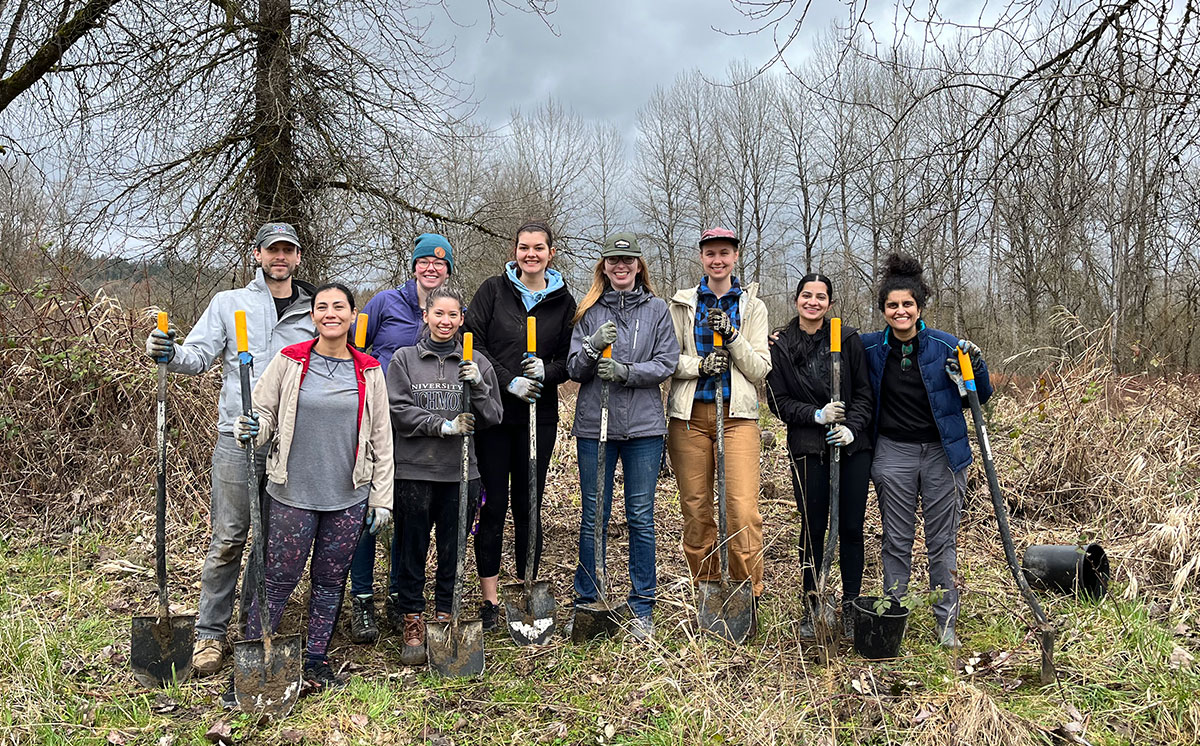
“The [Community] Conversations allowed us to discuss our priorities with the School’s leadership and get valuable feedback and suggestions,” said Ivy Lin, assistant director of the General Practice Residency and the faculty advisor of CAST. “I loved that the conversation was open to all members of the School. There were faculty and students, and I wish more staff could have attended, as their perspectives are also significant. Everyone contributed to the conversation and listened with an open mind.”
CAST was grateful for the opportunity to share its vision with the community.
“It was a wonderful opportunity for CAST to open the door to collaborate with the School community on sustainability,” said CAST student leader Angela Denton on the Community Conversation.
“These conversations are an excellent way for students to voice their opinions and ideas in a welcoming and open-minded environment,” said Denton. “I am looking forward to continuing to participate in them and encouraging others to as well.”
While the Community Conversations established a regular, formal gathering for addressing issues and generating meaningful discussions, some topics and some people flourish in a more casual setting.
In response to feedback from the School’s faculty, Dean Ritter began hosting informal gatherings called Coffee Talks With the Dean in fall 2023 to discuss pertinent workplace issues. The dean’s hope is that faculty will use the time to talk about where the School is today, the challenges they and their units are facing and the solutions they would like to explore.
“We started Coffee Talks to offer yet another setting for folks to come together and share thoughts and feelings about anything that might be on their minds,” said Dean Ritter. “While I do keep an open-door policy, these talks bring people together in a more intentional way and these sessions have been very helpful.”
There is no agenda for Coffee Talks. Instead, topics are suggested and discussed at the start of the meeting. A few recent examples include:
- The impact that the implementation of Workday Finance has had on grants, procurement and payments
- The desire of students to have the clinic schedule available with more advance notice
- How the departments communicate as a school; administrative support for pan-departmental courses
- Appropriate language for course evaluations
- Strategic plan implementation updates.
Dean Ritter feels strongly that the Community Conversations and Coffee Talks have helped advance Strategic Priority Three and that they provide a space for everyone at the School to have a voice.
“Before Community Conversations and Coffee Talks, we relied almost exclusively on leadership to relay information to our many offices and departments,” said Dean Ritter. “These scheduled sessions bring everyone together and create space and time for all voices to be heard.”
With the CODA site visit now in the rearview mirror, the Dean said he plans to host Coffee Talks more regularly moving forward.
Storytelling in a Safe Space: The Inclusion, Diversity and Equity Affinity Group
The Inclusion, Diversity and Equity Affinity Group meetings provide another opportunity for staff, faculty and trainees to gather informally each month. Here they can share and expand their perspectives on what it means to be more inclusive and equitable in their work in the School, the UW and their communities. The gatherings also serve as a platform for elevating such matters to the Equity, Diversity, Inclusion and Belonging Committee for institutional consideration.
Initiated in January 2020, the Affinity Group meets the third Tuesday of every month and is open to anyone at the School. Dean Ritter, Dr. Jackson and Renni Bispham are the executive sponsors. Discussion topics originate from whatever is on the participants’ minds. They have included time for reflecting on the murder of George Floyd, the ways antiracism might show up at the School and ideas for purposeful allyship during celebrations of various social identities (e.g., Black History Month, Women’s History Month, Pride Month, Hispanic Heritage Month and Veteran’s Day). The format of the meetings is also determined by the participants. After being forced online within a few months of its creation due to the COVID-19 pandemic, the Affinity Group settled into a hybrid format, which provides easy access for anyone who is off campus.
“One of my core beliefs in avoiding conflict, be it at the workplace or the world at large, is understanding cultural differences,” said Christina Wee, Assistant Director for Human Resources. “The Affinity Group meetings provide a forum and a safe space, for us to come together as a community to share our perspectives on things, rooted in our own lived experiences. Of late, the group is doing this through storytelling—sharing our personal narratives to promote a better understanding of each other.”
This storytelling format is patterned after The Moth, a nonprofit organization that “celebrates the commonality and diversity of human experience through the art and craft of true, personal storytelling.” The stories shared by Affinity Group members deepen connections within the group and among the School’s many micro-communities and build self-confidence.
Guidance Through a Community of Experts: The Junior Faculty Mentorship Program
When assistant professors are hired, they lean on their department chairs for support right out of the gate. Part of a chair’s responsibility is to guide these junior faculty toward success in their established roles. However, as careers develop and take shape, junior faculty may find they would benefit from the guidance of additional senior faculty. For example, an early-career faculty member might have a keen focus on research, but their chair is more involved with clinical education. Guidance from a senior faculty member involved with funded research could assist them and that’s where the newly established Junior Faculty Mentorship Program comes in.
The mentorship program was launched last May with an announcement from Dean Ritter and Dr. Greg Huang, Associate Dean for Faculty. They encouraged junior faculty to seek out willing mentors — who are simultaneously encouraged to take on mentees — to complement the mentorship provided by the chairs. Within one year of their appointment, a timeline that provides sufficient time for familiarization with their colleagues, assistant professors may ask senior faculty to become their formal mentors. Chairs will continue to support and mentor their faculty, but this self-selection of an additional mentor offers another dedicated faculty member who can provide early-career guidance and encouragement.
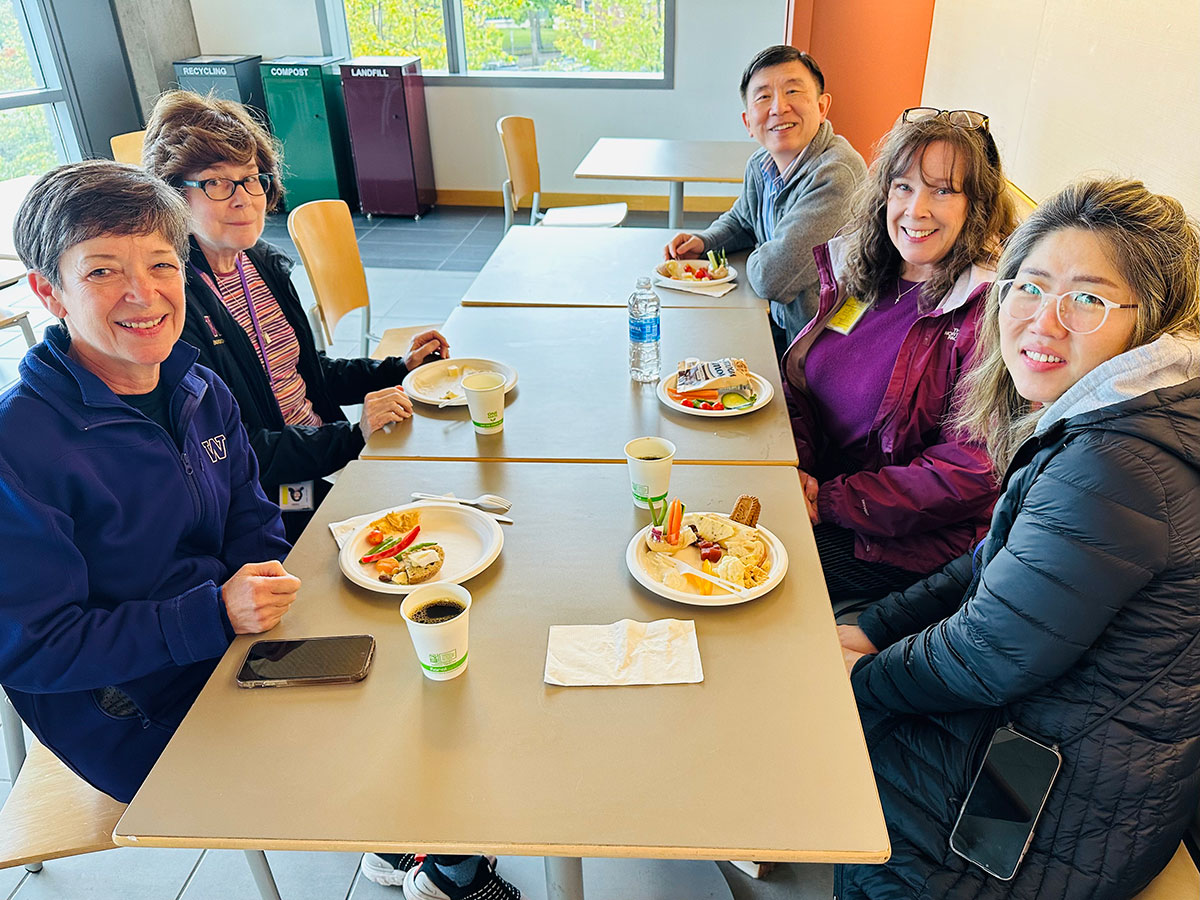
“The junior faculty are our most valuable commodity,” said Dr. Huang. “At the dental school, students complete their education in four years, but the faculty could be here 20, 30, even 40 years. Therefore, we want to help and support our junior faculty, so they will have long, productive and successful careers at the School.”
Six pairings have already been established. Participation isn’t mandatory, but hopefully the experience is fulfilling enough that word of its value spreads and, year–over–year, more faculty decide to pursue a mentor.
Dean Ritter and Dr. Huang also helped establish the Junior Faculty Networking Group, which schedules quarterly lunch meetings for assistant professors. Faculty in leadership positions are invited to give brief presentations on various aspects of an academic career, such as promotion guidelines, funding opportunities and involvement with service organizations. The meetings also allow junior faculty to meet, cultivate an atmosphere of belonging and potentially collaborate in teaching and scholarship.
Dean Ritter and Dr. Huang attended the first meeting of the Junior Faculty Networking Group. Sara Gordon, Professor and former Associate Dean for Academic Affairs, and Dr. Donald Chi, Associate Dean for Research, are scheduled to join future meetings.
Since faculty are hired year-round, information about networking events and the mentorship program needs repeating. That’s why Dr. Huang plans to regularly remind faculty of the program through emails and at annual events, like the faculty retreat.
“What I hope to be able to do in future years is have some mentor-mentee pairs give a short presentation on what’s worked well for them and what advantages they have discovered,” said Dr. Huang. “It helps these junior faculty get a better idea of how they can be assisted to be successful. Your whole life you train to be a dentist and not an academician, but suddenly you are a faculty member and the skills and metrics for academic success are quite different.”
Fostering Friendships: Social Events and Student Gatherings
The School continues to invest in social events intended to cultivate and deepen relationships among community members. In-person social gatherings were cut off during the pandemic and their reintegration took steady effort and planning. However, now that they’ve returned to pre-pandemic levels of participation, their importance is underscored in Strategic Priority Three. One listed objective of AOHFA is to “develop and promote strategies to engage the entire School community in School-sponsored activities and events that increase our connectedness with one another and build a culture of connection.”
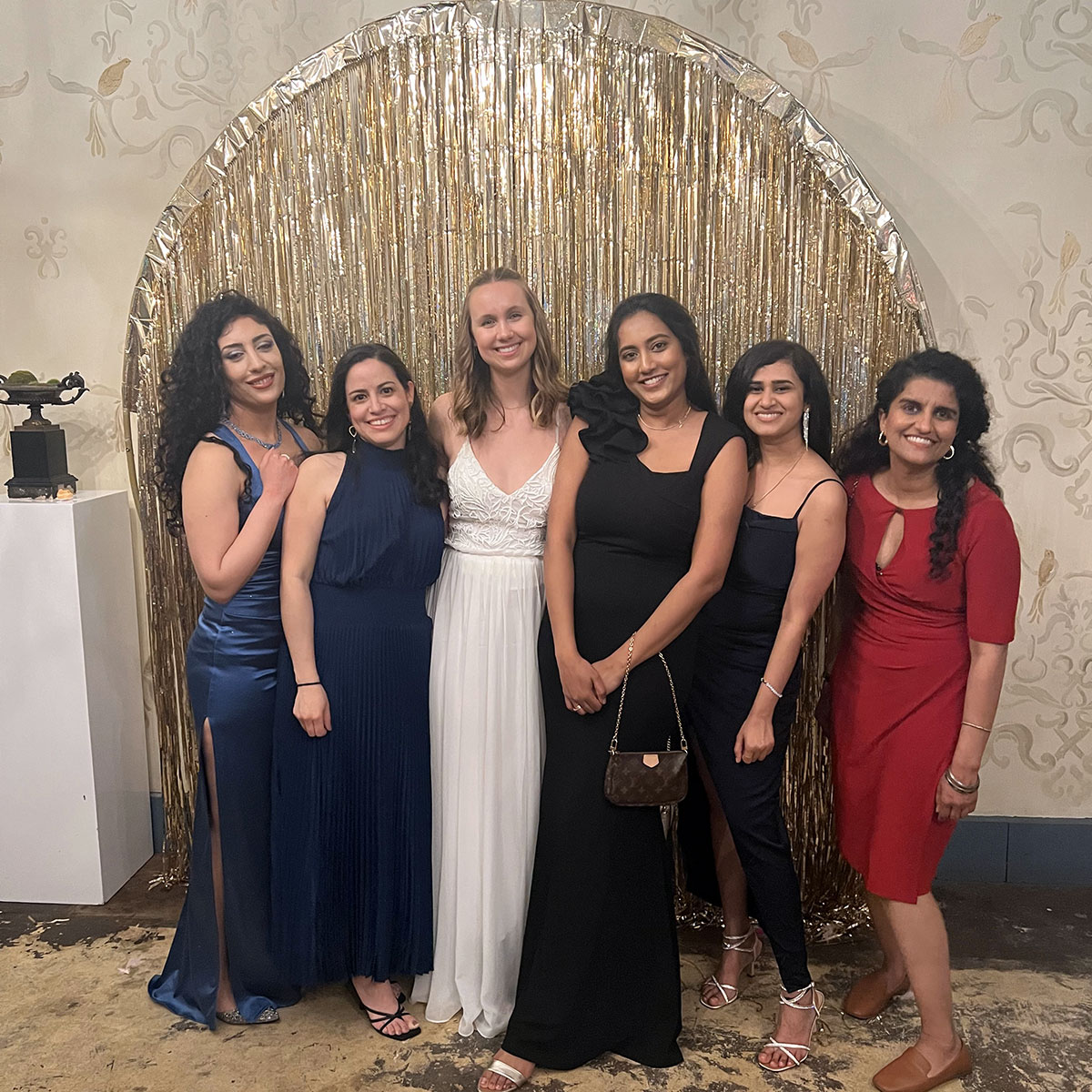
One of those events is the annual Dental Gala, held each spring as the academic year comes to a close. Alumni, staff, faculty and students are encouraged to attend the event, which is organized by third-year dental students.
“I really love our dental school gala because it is a space for dental students, as well as faculty, to connect outside of the school setting,” said fourth-year student Abigail Koenig. “It’s a great opportunity for everyone to ditch the scrubs for a day and get dressed up for a fun night of dancing and socializing.”
In addition to School-organized events, students connect outside of the classroom in ways that build community and strengthen friendships, said Shank. Intramural sports and clubs, such as Medicine in Motion, are popular ways students get together. Many student organizations also host events that combine career development with socializing, such as the Hispanic Dental Student Association, which offers Spanish lessons and snacks at its gatherings.
“The most common way for students to connect is through impromptu hangouts and study sessions, which help form tight-knit communities,” said Shank. “These interactions encourage a sense of belonging and personal growth and they enhance the overall student experience.”
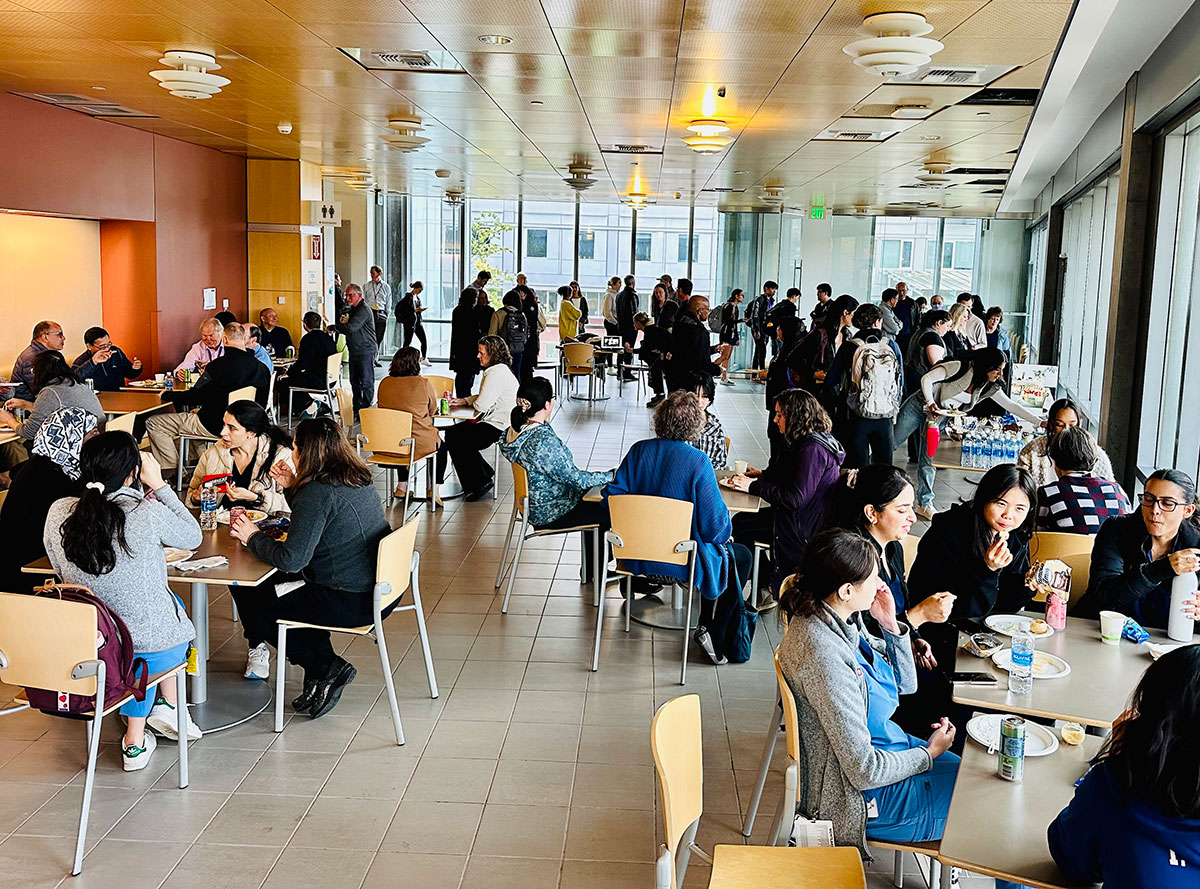
School leadership also plans on-campus social events, creating opportunities for members of the School community who don’t typically cross paths during their day-to-day schedules. celebrated the start of the new academic school year. Dean Ritter invited all members of the School, from first-year predoctoral students to part-time staff, to stop by the Vista Café or the Sandpoint conference room for a respite from their daily tasks. Refreshments were provided and attendees were encouraged to discuss with one another what they hoped to accomplish during the upcoming school year.
“We are grateful that the Sandpoint site was included in the Welcome Back Social,” said Gerald Macheso, administrator for the Center for Pediatric Dentistry. “This gathering provided our group with a valuable opportunity to engage in meaningful interactions beyond our usual workspaces, fostering a sense of community and connection among colleagues.”
The School’s Holiday Party is another social event that serves to gather staff and faculty from the School and the Shoreline Community College dental hygiene program for an evening of celebration. It is hosted each December by the Office of Advancement.
“The School is a special place to work, but oftentimes we don’t get to see or socialize with individuals from other departments or clinics at the School,” said Randy Newquist, Assistant Dean of Advancement and External Affairs. “The Holiday Party is a special time because it allows us to have a break from our busy daily lives and responsibilities and get together to socialize and enjoy the company of those we don’t see very often. It brings us together and helps make us feel like one big happy family.”
In January, the Class of the 2000s reunion at the Burke Museum brought together recent alumni and current dental students to connect and socialize. Other annual alumni events such as the Husky Football Brunch and golf tournament continue to strengthen the School’s alumni network and give alumni opportunities to meet faculty and staff members.
Creating a Lifelong Community: A Call to Alumni
Clearly, it is an exciting time at the School. New initiatives aimed at fostering a culture of belonging are being implemented, as longstanding traditions continue. While the School is already making strides toward achieving Strategic Priority Three, additional work remains. With a strengthened sense of community and connection at its center, the School will be an even greater force for good in our community.
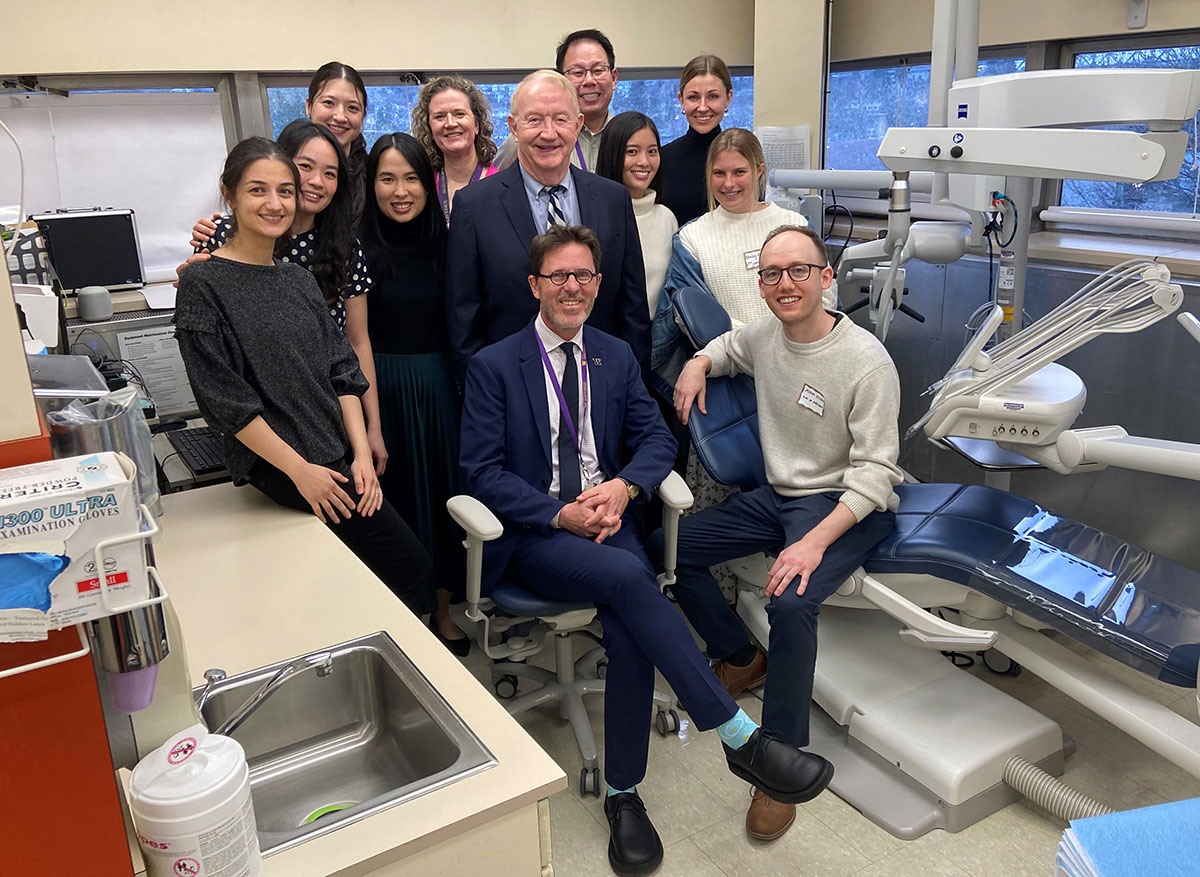
No matter how long-ago graduation was, alumni can consider how they might contribute to Strategic Priority Three. Staying engaged with the School through social events, scholarship and investments, models how trainees should approach their alumni years. It identifies the School as a community they can belong to and support for the rest of their lives.
“Before coming to dental school, I heard from many dentists that (this) was the best time of their lives,” said Shank. “My classmates have played a huge role in helping me feel like I belong. They allow me to be unapologetically myself, laughing at my jokes, inviting me to study sessions and valuing my input on clinical questions or personal matters. I can be vulnerable with them, ask questions without fear of judgment and share struggles, knowing I’m not alone in facing the same challenges. I’m incredibly grateful to be part of this amazing cohort and I couldn’t ask for a better group to experience this journey with.”